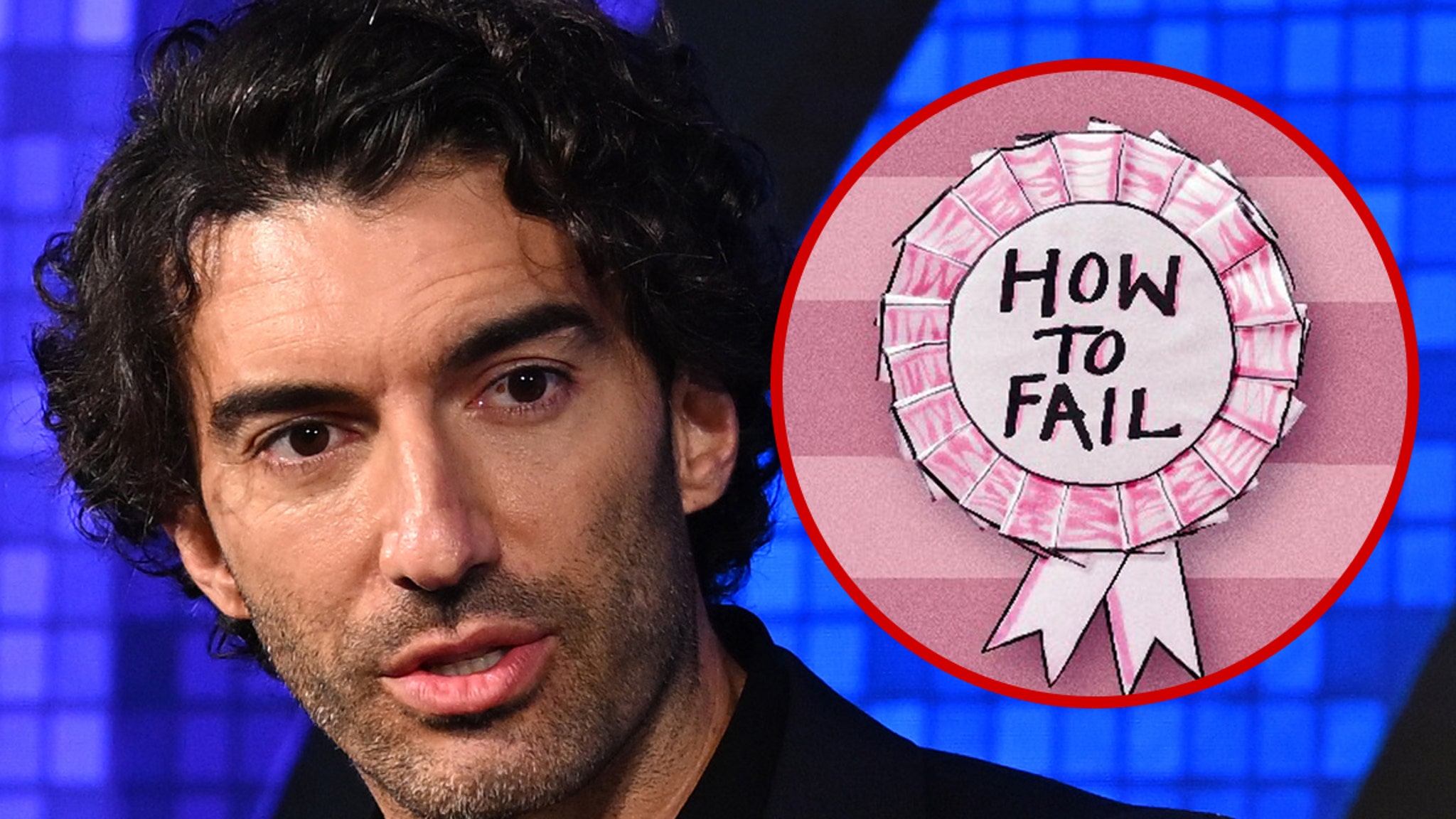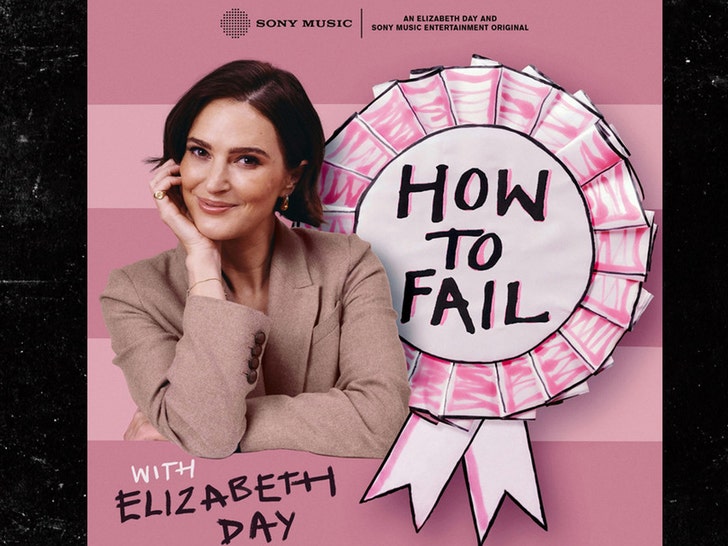Lifestyle
Jeff VanderMeer painted a grotesque picture of climate change. Now he’s back for more

You know how in the Star Wars prequels, you learn how midi-chlorians sort of explain Jedi powers? Or how The Silmarillion explained all the history and lore of the Lord of the Rings trilogy? Don’t expect those types of concrete answers from the new novel Absolution.
“I’ve never really been into the idea of ‘lore,’” said author Jeff VanderMeer in an interview.
Absolution is the follow-up to VanderMeer’s wildly popular 2014 Southern Reach trilogy. Starting with Annihilation, the books told the story of Area X — a bit of land cut off from the rest of the continent, where nature has taken over. It’s lush with vegetation and wildlife, and it’d be beautiful except that weird and bad things tend to happen to people who enter. They get sick. They die. Or, they turn into creepy crawly creatures.
The atmospheric novels got rave reviews. Annihilation was adapted into a movie by director Alex Garland. And VanderMeer became a poster child for weird horror fiction that dealt directly with climate change. The new book, Absolution, with its eerie alligator experiments and grotesque depictions of skin suits, won’t change that. But VanderMeer isn’t too keen on being labeled a “climate-fiction” writer. “It’s hard for me to see climate fiction as a speculative endeavor,” he said. “It seems useful to try to avoid that categorization to some degree so that people can see novels for the totality of what they are.”

In the original trilogy, the Southern Reach is the government agency tasked with exploring Area X. It’s probably not a major spoiler to say that it doesn’t go well. And you find out that the Southern Reach is a bit of a mess. Actually, VanderMeer says a lot of his writing is about systems and institutions going haywire. He traces his interest in the theme back to an old day job doing software implementation, working for “a lot of companies that were like Lord of the Flies with middle management. And then dealing with government agencies, seeing just how ritualistic they were.”
It’s easy to make the allegorical jump from the Southern Reach trilogy to our institutional problems in dealing with (and causing) climate change. A bunch of critics and academics did. “It’s certainly thinking a lot about toxicity, forms of pollution, contamination and mutations,” said Alison Sperling, assistant professor of English at Florida State University. Sperling specializes in environmental fiction and has seen the field try and grapple with the utility of climate fiction. She often sees the question, “Can climate fiction save the planet?” And while she gets the motive, it’s not the right question for her.

“Weird fiction and weird eco-fiction, like [VanderMeer’s] kind of quite explicitly refuses to offer certain forms of answers or certain ways we’re supposed to respond. It serves as a refusal of that,” Sperling said.
Absolution continues to refuse to offer any answers. You obviously don’t get to the end of the book and suddenly realize the solution to climate change. You barely even get any answers to “What the heck is Area X, anyway?” But the answers aren’t the point. It’s how terrifying the questions are.


Lifestyle
Podcaster Takes Down Justin Baldoni Episode Amid Blake Lively Legal War

Justin Baldoni has suffered another blow amid his legal war with Blake Lively … a podcaster who recently interviewed him has removed his episode.
Elizabeth Day, who hosts the ‘How To Fail’ podcast, shared an IG statement Tuesday, explaining she had taken down the December 4 interview with Baldoni while all the “distressing allegations made against him in Blake Lively’s recent lawsuit are fully investigated.”
Waiting for your permission to load the Instagram Media.
Elizabeth spoke of Baldoni’s legal matter in general … saying she believes every individual has a right to a safe workplace, and every woman should have dignity in that workplace.

She wrapped up the post, saying that every form of abuse should be called out, and she salutes anyone with the the courage who does.
Baldoni’s podcast interview with Elizabeth was in-depth and personal — he spoke about his ADHD diagnosis at age 40 and also spoke of a “near breakdown” on the set of “It Ends With Us,” which he directed and starred in alongside Blake.

Looks like a lot went down BTS of the film, ’cause Blake’s filed a sexual harassment and smear campaign lawsuit against him, in what she claims is a coordinated effort to destroy her reputation. Baldoni has denied all the claims.
Lifestyle
How to navigate gift returns and regifting this holiday season

Shoppers walk along Fifth Avenue on Nov. 29 in New York City.
Heather Khalifa/AP
hide caption
toggle caption
Heather Khalifa/AP
If you’re feeling guilty for thinking about returning that unironically ugly sweater your least favorite aunt gave you this holiday season, maybe don’t. ‘Tis the season of giving — and returning, after all.
The National Retail Federation reports that returns will total $890 billion for all of 2024. Returns happen year-round, but are most prevalent during the holiday season, the organization said.
But etiquette experts caution there is a delicate art to returning, or even regifting, the presents you receive.
“When it comes to returning a gift, I think discretion is key so you never hurt the gift giver,” said Myka Meier, an etiquette expert who runs Beaumont Etiquette in New York City.
There are some things to consider before heading to the store to make a return, according to Jo Bryant, a British etiquette consultant.
“The best way to return an unwanted gift is to really examine the financial worth, and relationship with the giver. It always involves a tricky conversation, so it is best to prioritise this for more expensive gifts when it really would be [a] shame that you can’t use it, and a real waste,” Bryant wrote in an email to NPR. “You also need to know the person who gave you the gift very well to be so honest with them.”

People walk past shops on Dec. 11 in Philadelphia.
Matt Slocum/AP
hide caption
toggle caption
Matt Slocum/AP
Keep quiet and return
For Meier, it’s all about discretion when it comes to returning a gift.
She and Bryant differ on whether plans for returns should be shared with the gift giver.

Meier said don’t say anything “unless they specifically ask,” she said. “For most situations, it’s better to simply thank them graciously for their thoughtfulness without mentioning the return. The focus should always be on appreciating the gesture of being given a gift, not the item itself.”
And maybe keep mum even after some time has passed, she recommends.
“I would still try to avoid ever bringing it up, but I also would not lie,” she said.

So, if that aunt who bought that ugly sweater asks how it fits two months after Christmas?
“In that case, you can kindly and tactfully explain, for instance: ‘It was such a thoughtful gift! Unfortunately, it didn’t fit quite right, so I exchanged it for something similar that I’ll use every day and always think of you!’ “

A shopper carries a Christmas-themed bag in London on Dec. 2, 2020.
Alberto Pezzali/AP
hide caption
toggle caption
Alberto Pezzali/AP
But maybe direct honesty is more your style?
Bryant believes “honesty and tact is best.” Regardless, be sure to flatter the gift giver and heap praise on the present at the same time.
If something absolutely must be returned, instead of saying that you just didn’t like the present, give a reason for the return that is out of your control, Bryant said.
She suggested saying something like, ” ‘I loved the cashmere jumper — it is one of my favourite presents this year — but I think the size up would be more comfortable for me,’ or ‘Thank you for the crystal glass vase; we love it but my mother recently gave us one very similar. I really don’t want such a generous gift to be wasted, so I’d love it if we could look to choose something else together? You always get us the best presents and we are so lucky to get such amazing and thoughtful gift from you.’ “
To save on possible awkwardness with these kinds of exchanges, Bryant suggested that gift givers be proactive and include the gift receipt, when possible.
What are the rules on regifting?
Yes, regifting is allowable, under etiquette rules.
“But it should be done thoughtfully and carefully,” Meier said.
There are limits to what can be regifted. “If the gift was customized in any way or has sentimental meaning, it’s not something to regift,” she said.
She addresses this topic further in a post on Instagram.
Some things Meier recommends if you plan on sending that previously discussed hideous sweater to a new home:
- Make sure the gift is new, totally unused and in its original packaging
- Avoid giving this gift to someone in the same social circles. In other words: Don’t give the sweater your aunt gave you to your cousin.
- Rewrap the gift “to show effort and care, just as you would with a newly purchased gift!”

Lifestyle
Opinion: As Christmas and Hanukkah coincide, is it time for everyone to let there be holiday lights?

Hanukkah begins on Christmas this year, marking a rare coincidence of the Jewish and Christian holidays, which occur according to different calendars. The alignment invites reflection on how two traditions can inspire each other.
The Orthodox Jewish community I grew up in rejected Christmas lights as signs of unwanted assimilation. We lighted the menorahs in our windows and doorways for the holiday’s eight nights, keeping the tradition simple and understated. Any more showy displays would have felt like crossing a line.
Still, as a child, I secretly admired the glowing homes of my neighbors. But those lights weren’t for us — or so I was taught.
Decades later, I stand in my cul-de-sac and stare at my neighbors’ dazzling home, with warm, sparkling lights wrapped around the trees. They decorate their home for Christmas because it brings them joy — and, honestly, it brings joy to everyone who passes by.
Apart from menorahs and basic landscape lighting, most of the Jewish homes on the street stay dark during Hanukkah. We keep them that way out of habit, tradition and a lingering belief that holiday lights are “not Jewish.”
My kids don’t observe the rigid boundaries of my childhood, though. When we drive through the neighborhood, they’re drawn to the lights like moths to a flame, pressing their faces against the car windows and pointing out their favorite houses.
“Why don’t we have lights like that?” my 12-year-old, Rosa, asks, her voice full of wonder and betraying a hint of sadness.
I don’t have a good answer. Why don’t we?
Holiday lights have more than aesthetic benefits, signaling community and social connection. Lights can boost mood, reduce stress and create warmth, especially during the dark winter months. Holiday lights are more than decorations; they’re a means of emotional well-being. These seem like good reasons to rethink our traditions.
Judaism, however, emphasizes differentiation: Observing dietary laws, keeping the Sabbath and other practices make us stand out, reminding us — and others — of our identity. Critics claim holiday lights blur the distinction between Jewish and non-Jewish traditions.
Christmas lights descend from the candles once used to decorate Christmas trees, which in turn may have links to pre-Christian traditions. Ancient civilizations celebrated the winter solstice with evergreens and fires to mark the triumph of light over darkness. Christianity adopted some of these traditions, and starting in the late 19th century, electric light helped the holiday decorations become a secular cultural tradition in Europe, America and beyond.
While holiday lights have only become less specifically religious, they still carry strong associations with the Christian celebration of Jesus’ birth. Preserving Jewish identity in a world of cultural blending takes effort, and some worry that adopting symbols closely tied to Christmas undermines that work.
The tension between preserving Jewish distinctiveness and engaging with the rest of society isn’t new. Hanukkah itself celebrates an ancient Jewish victory over the Seleucid Empire, which sought to impose Hellenistic culture and forced assimilation in Judea.
But standing out doesn’t require rejecting every element of the broader culture. Light, after all, is universal. The Jewish tradition uses light as a symbol of hope and connection, not least at Hanukkah, often called the “Festival of Lights.” The menorah represented eternal light and divine presence in the ancient temple, and Hanukkah celebrates the miracle of a single day’s oil lasting eight. The public lighting of candles shares our story with the world — known in Hebrew as persumei nisa, publicizing the miracle. Even a small flame banishes great darkness.
Holiday lights may have religious roots, but today they also bring joy to people of all backgrounds. For Jewish families, embracing holiday lights doesn’t have to mean celebrating Christmas. It can be a way of enhancing our own traditions with a universal symbol of hope and illumination. Using blue and white lights or incorporating Jewish symbols like illuminated dreidels or Stars of David allows families to celebrate their traditions while connecting with their neighbors. It’s not about copying Christmas; it’s about marking Hanukkah in a shared language of light.
Jewish tradition is already replete with light. The third verse of the Torah says, “Let there be light,” emphasizing its centrality to creation. Isaiah calls the Jewish people “a light unto the nations,” urging us to spread hope and inspiration. So why limit ourselves to eight nights of candles? Why not let our lights burn brighter and longer, connecting us to our neighbors and reflecting the beauty of our traditions?
Growing up, we avoided holiday lights out of fear of losing something by blending in too much. Now I realize we won’t lose anything but darkness. It’s time to change; it’s time to shine.
Eli Federman is a writer and private equity investor. X: @EliFederman
-
/cdn.vox-cdn.com/uploads/chorus_asset/file/24924653/236780_Google_AntiTrust_Trial_Custom_Art_CVirginia__0003_1.png)
/cdn.vox-cdn.com/uploads/chorus_asset/file/24924653/236780_Google_AntiTrust_Trial_Custom_Art_CVirginia__0003_1.png) Technology5 days ago
Technology5 days agoGoogle’s counteroffer to the government trying to break it up is unbundling Android apps
-

 News6 days ago
News6 days agoNovo Nordisk shares tumble as weight-loss drug trial data disappoints
-

 Politics6 days ago
Politics6 days agoIllegal immigrant sexually abused child in the U.S. after being removed from the country five times
-

 Entertainment1 week ago
Entertainment1 week ago'It's a little holiday gift': Inside the Weeknd's free Santa Monica show for his biggest fans
-

 Lifestyle7 days ago
Lifestyle7 days agoThink you can't dance? Get up and try these tips in our comic. We dare you!
-

 Technology1 week ago
Technology1 week agoFox News AI Newsletter: OpenAI responds to Elon Musk's lawsuit
-
/cdn.vox-cdn.com/uploads/chorus_asset/file/25672934/Metaphor_Key_Art_Horizontal.png)
/cdn.vox-cdn.com/uploads/chorus_asset/file/25672934/Metaphor_Key_Art_Horizontal.png) Technology2 days ago
Technology2 days agoThere’s a reason Metaphor: ReFantanzio’s battle music sounds as cool as it does
-

 News3 days ago
News3 days agoFrance’s new premier selects Eric Lombard as finance minister












